In seven years time, Zazie Beetz has gone from relatively unknown to Hollywood A-lister. And it was all due to a show that takes place in an alternate reality where invisible cars, indoor pet alligators, and glowing lemon pepper wings are commonplace.
The brainchild of comedian-rapper-actor and Atlanta-native Donald Glover, Atlanta made undeniable stars out of Beetz and her co-stars LaKeith Stanfield and Brian Tyree Henry, taking them from fresh faces on a niche sitcom to highly coveted top-billed actors, Marvel superheroes, Oscar nominees, Golden Globe-winners.
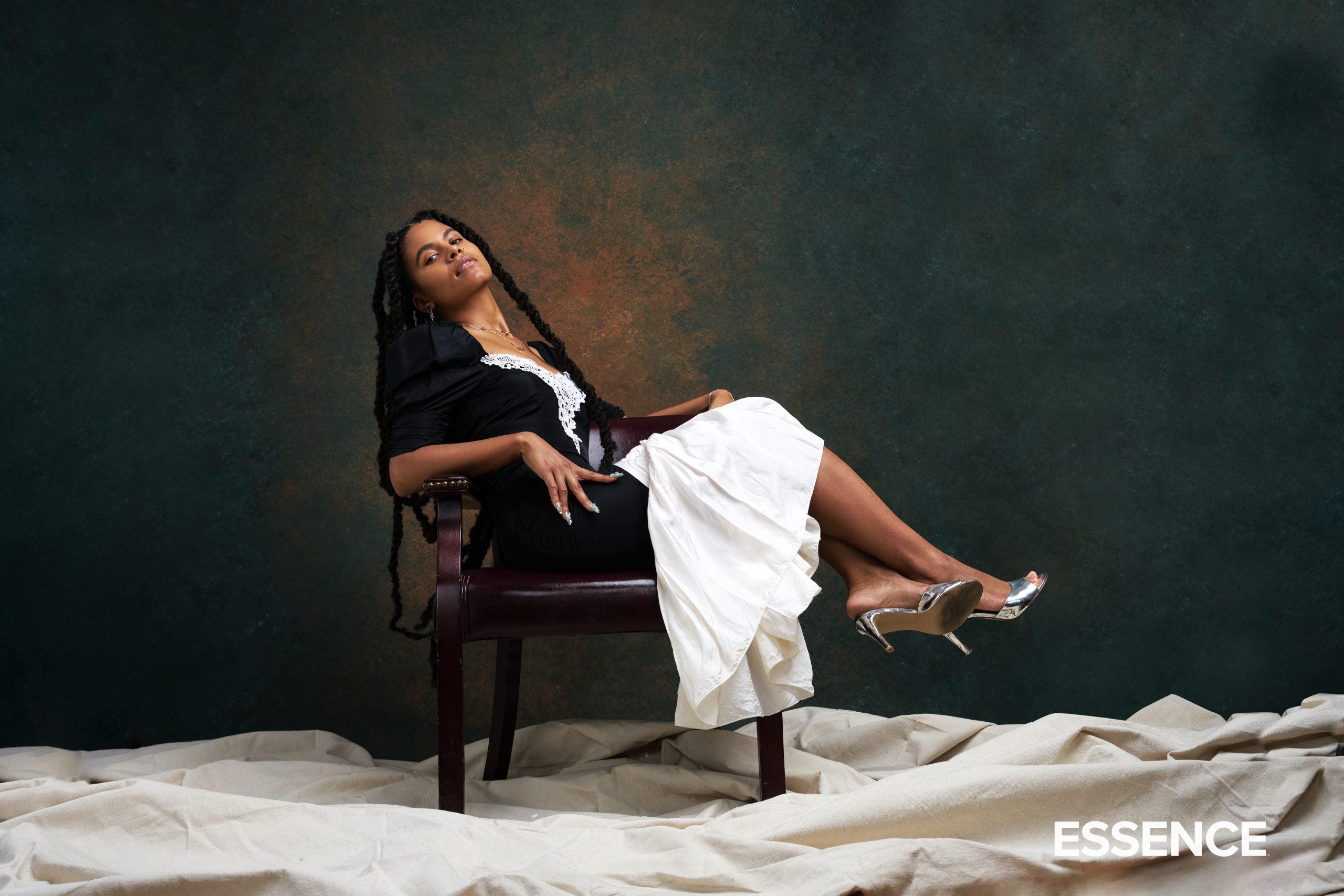
“I definitely think of my life as a pre- and post-Atlanta experience,” Beetz tells ESSENCE exclusively. “Atlanta fundamentally changed my life.”
For Beetz, the show and her character Vanessa “Van” Keefer have both been pivotal and transformative. Since the hit FX comedy’s pilot episode hit airwaves in September 2016, Atlanta has turned expectations on its ear. The afro-surrealist comedy-drama follows the lives of four somewhat nihilistic Atlanta natives as they navigate their late-20’s and the local rap scene, examining topics both big and small through an absurdist lens. Van, the ex-girlfriend of Earnest “Earn” Marks (Glover) and mother to their young daughter Lottie, is the sole female character on the show, facing her own existential crisis as the rest of the characters chase fame and purpose through hip-hop.
“I will always love Van,” Beetz says of her Atlanta alter-ego. “I made a necklace with her name on it, which I wear almost every day. I feel very much like I need to take care of this character, make sure that she knows she’s loved.”
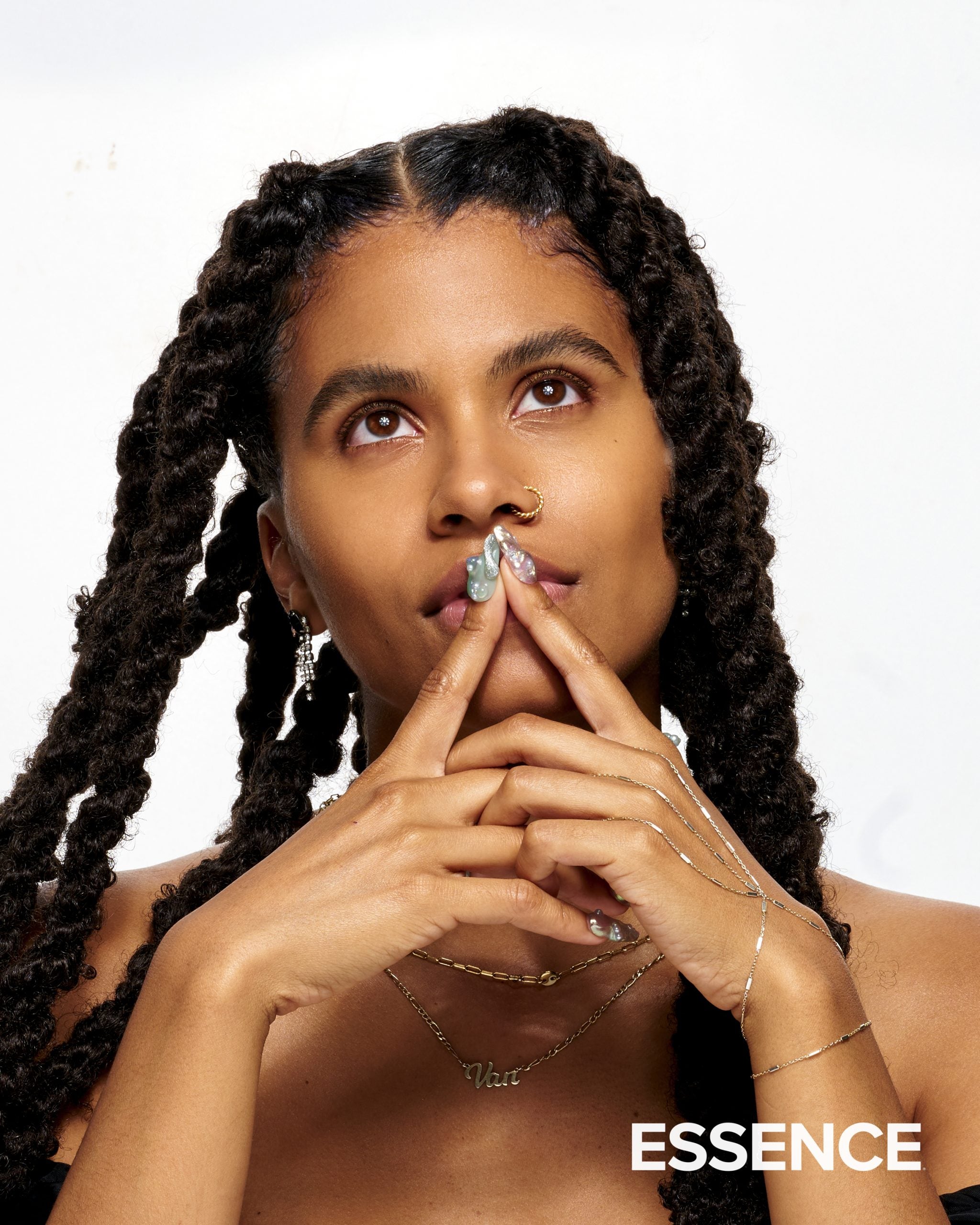
Beetz has formed a close bond with her character over the years, to the point where she admits she feels protective of her and defensive of her life decisions explored through the show. Van’s arc has seen her go from the ever-responsible co-parent, dutifully holding a stable job and being the primary caregiver of their daughter while Earn and his friends individually discover their purpose and chase a dream, to, in more recent seasons, abandoning that status quo and seeing what else is out there for her.
“To explore her chaos and her freedom in seasons three and four just felt almost like this middle finger to these other characters that get to do it all the time,” Beets explains. “Paperboy and Darius and Earn get to have this wild element to their lives that Van wasn’t allowed to have.”
Once Van finally had her own moment of getting lost, trying new strange things, finding herself, and going on this wild surrealist ride that the show’s male characters are seemingly constantly on, most intensely revealed in season three’s finale episode “Tarrare,” Beetz found herself having to put on those defenses of her beloved character against fans who missed the point.
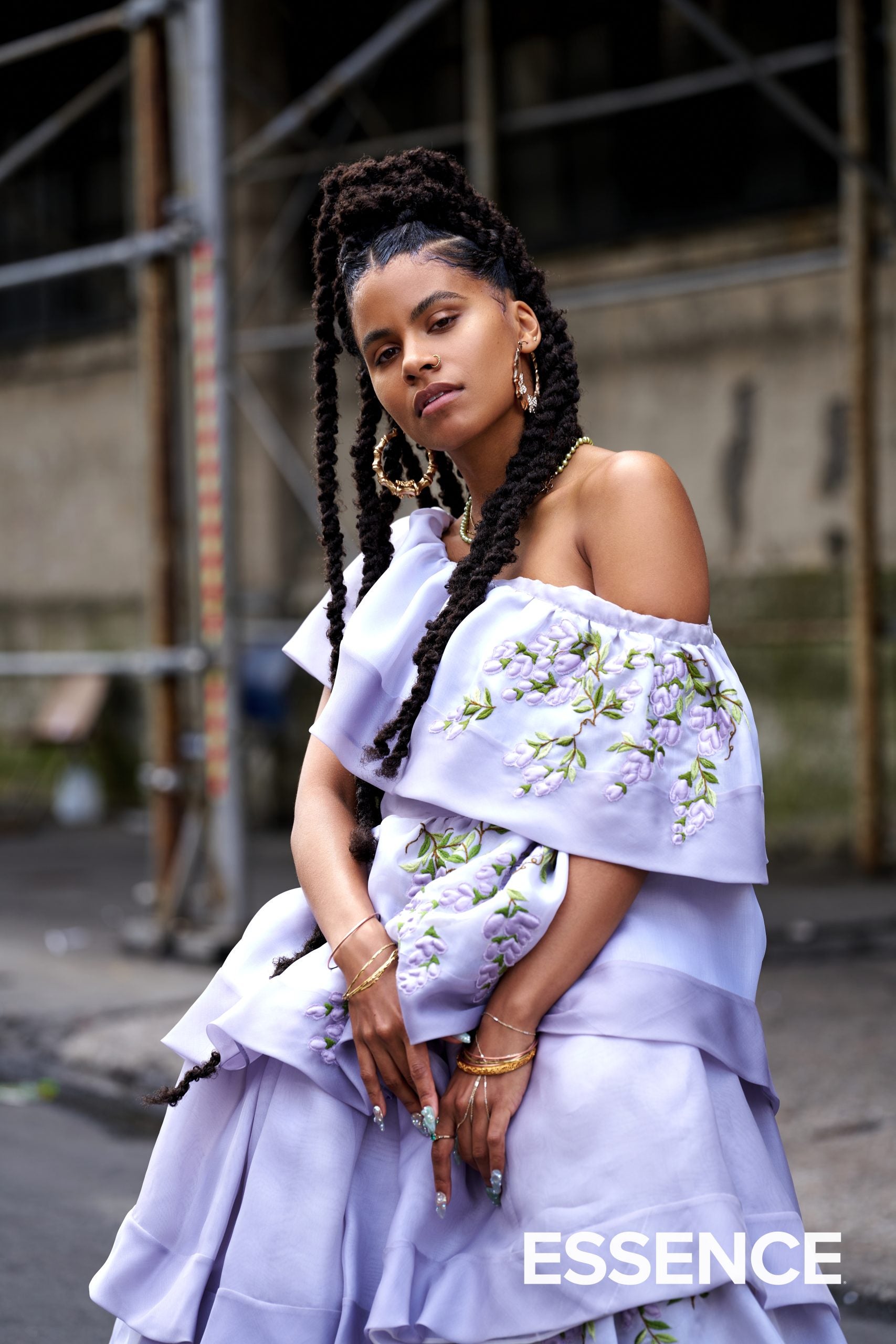
“I just think it’s interesting, when Van finally has [that freedom], everybody’s freaking out, even audience members. I was getting all these messages on my Instagram mad that Van wasn’t with her daughter. And I just felt like, ‘Yeah, she’s doing her own thing! Earn can do his own thing, but she can’t?'”
Van’s evolution as a woman and as a mother continues in Atlanta‘s final season. After their adventure in Europe (a particularly interesting turn of events for Van in France), season 4 sees our main characters back home in Atlanta. The season opener finds Van and Earn forced to confront their respective pasts on a routine trip to Midtown Atlanta’s Atlantic Station, a familiar haunt for metro-area dwellers. In true Atlanta fashion, the errand quickly turns into a hilariously surrealist journey, one which forces them to interrogate what place each of them holds in the other’s life.
True to its more traditional form after a more tangential third season, Atlanta‘s in its fully tone-shifting, genre-bending, reality-twisting, fever-dreamlike form this season. The show, which challenged traditions in storytelling for media with a Black cast at the center, is tough to pin down. Few other programs in recent years have prompted viewers to laugh, cry, and ponder big topics and cultural norms in just a 27-minute time span the way Atlanta has.
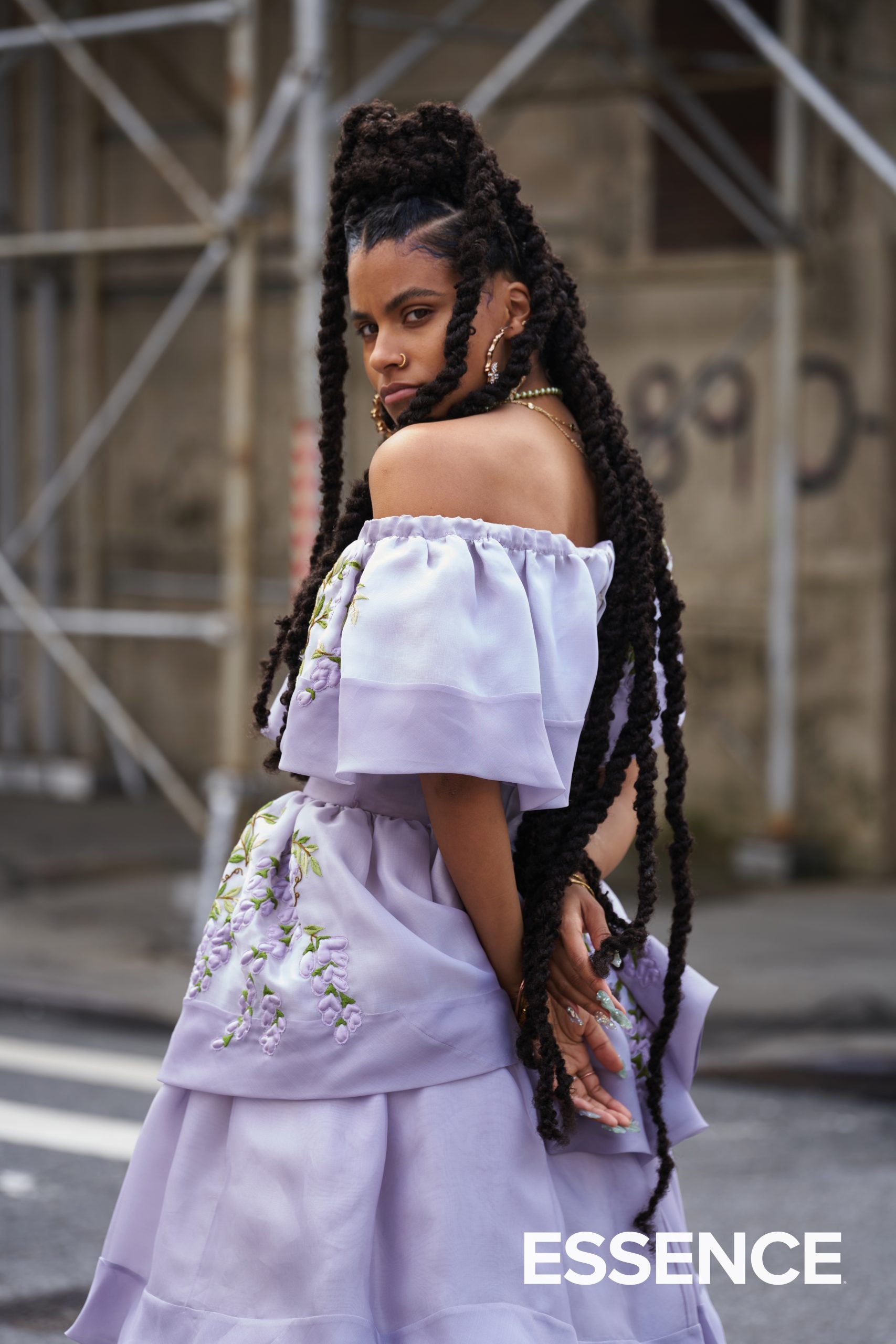
“It’s hard to even identify it as a comedy,” Beetz says. “What I found remarkable about the show was the abandonment of a linear story. As I was experiencing making and watching the show, I felt very freed in a way from what we expect television to be.”
When asked what cultural impact she believes the show will leave for Black media, she said that she believes it will show other creatives that there is no formula to follow. You can tell your story however you want, and it doesn’t always have to “make sense” the way we’ve been told it must.
“This show told Black stories in a way that felt not like a joke, not like a painful drama, but more like an absurd kind of interpretation of life. I like that it’s coupled the very basic primal experience of parenting and the drudgery of every day with surrealism and almost these supernatural kinds of experiences.”
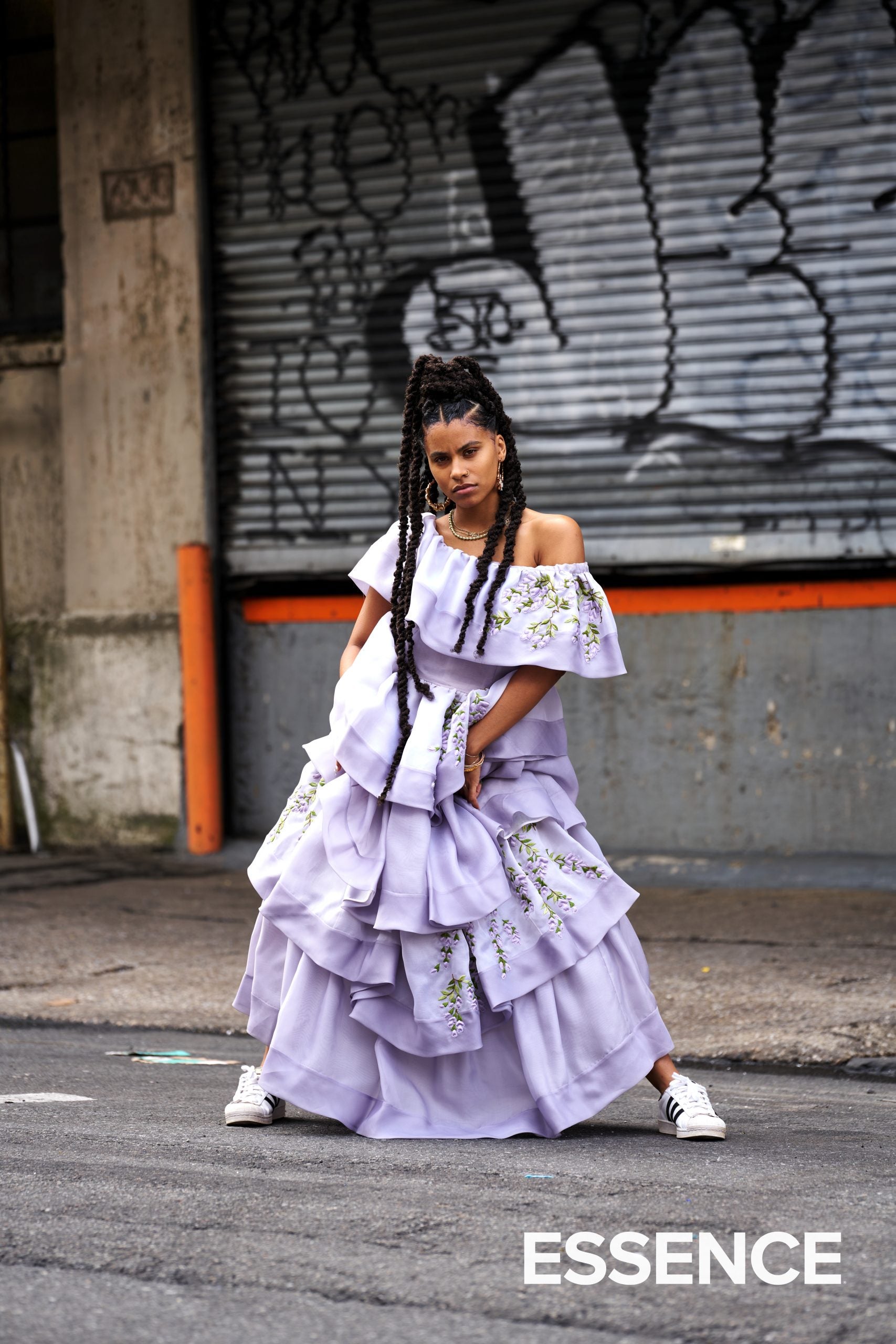
“With art, I find the more niche you become, the more resonant it is,” she said. “Everything has its place and appeals to certain people, but it’s harder to actually get into the nitty-gritty of emotions and specificity of life. If you go weird, you’ll be shocked, if you take that risk.”
Saying a bittersweet goodbye to the show that changed her life forever and armed with the lessons it has taught her, Beetz is now looking for her next risk. She has the HBO Max crime drama limited series Full Circle, directed by Steven Soderbergh and co-starring Claire Danes and Timothy Olyphant in the works, as well as Folie à Deux the very hush-hush sequel to 2019’s hit antihero film Joker, co-starring Joaquin Phoenix and Lady Gaga. She and her longtime partner David Rhysdahl are also co-writing and producing a number of projects they’re pitching for completion.
“When I’m looking for characters, I’m looking for versatility, looking for things that I haven’t tried before to try and do things that I’m scared of and to challenge myself with,” Beetz says of finding the next role. “I also often look for moral complexity, because I find the things I watch and consume, I am most moved by complication.”
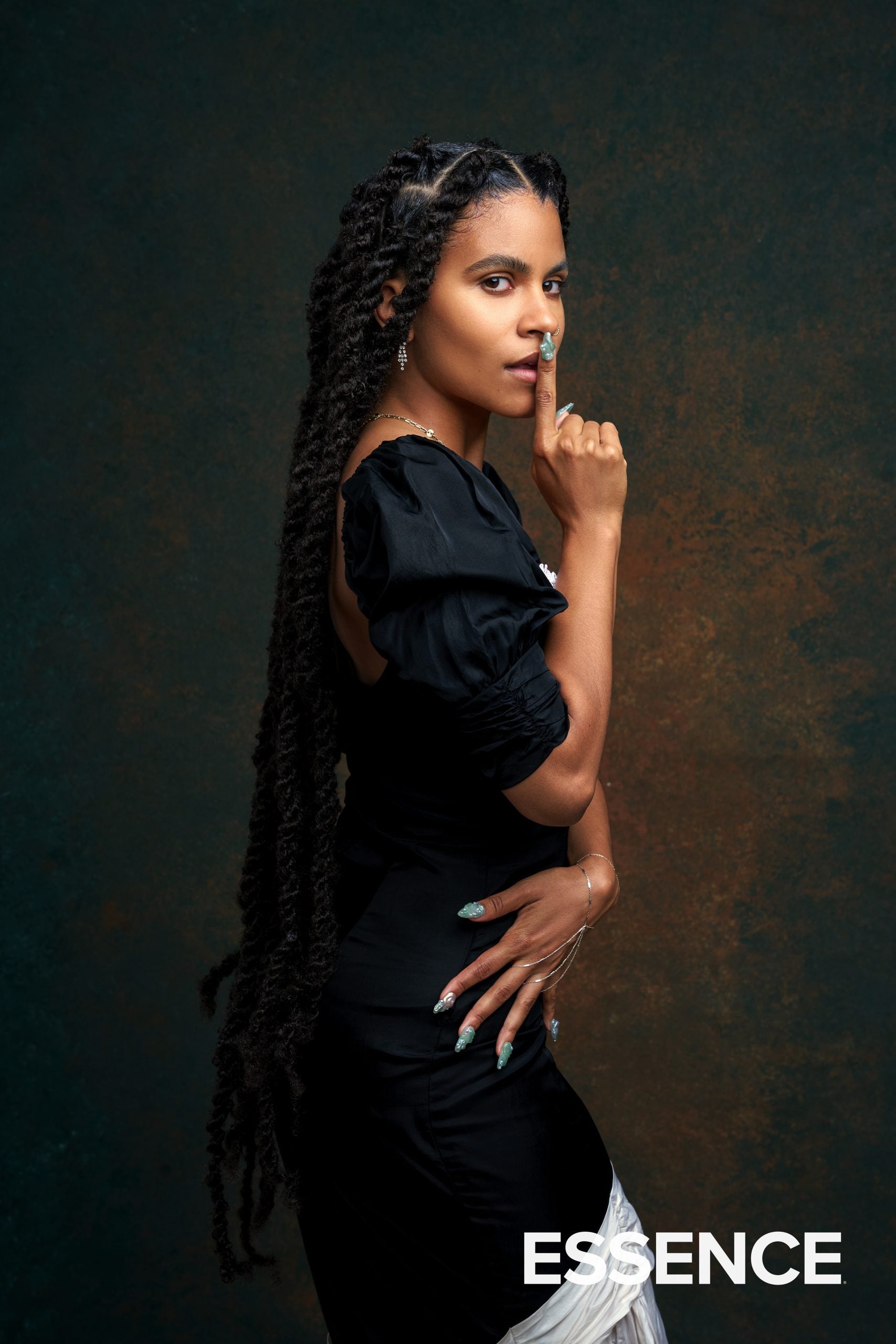
Much like her beloved character Van, Beetz says she too moves in the shades of grey, with the realization many others can relate. She wants to be able to tell various stories over the course of her career, and never be pigeonholed into one status quo.
“I want to be able to grow as I get older and I can then take on different identities with my characters. People can potentially see me as a childless person and then potentially as a mother and then as a grandmother. As somebody who is strong and sexy or somebody who doesn’t feel strong and doesn’t feel sexy. I want to embody all of those things because I feel like I’m all of those things.”
“Women are complicated,” she adds. “People are complicated, and I want to continue to tell people that it’s okay to be complicated.”